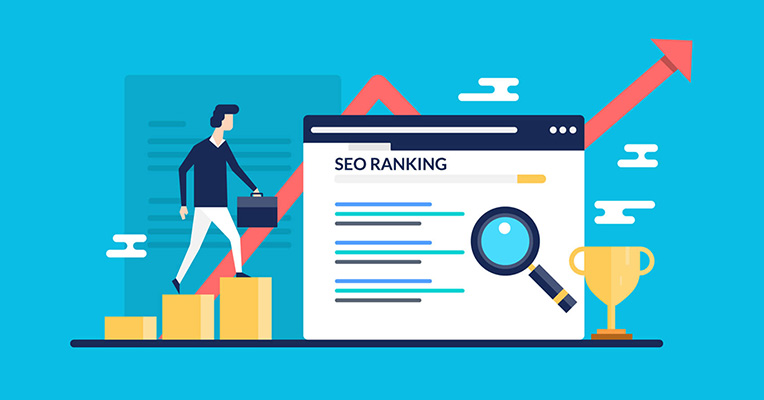When discussing digital marketing, you’ll frequently encounter the term SEO, which stands for Search Engine Optimization. It’s often associated with search engines and plays a vital role in helping users find products or services online. But what exactly is SEO? Do you really need it for your website?
This article will explain what SEO is, why it’s essential for your brand, and the top seven reasons why having it on your website is crucial.
What Is Search Engine Optimization (SEO)?
SEO is a collection of strategies and techniques used to enhance a website’s visibility in organic search engine results. With better visibility, your site is more likely to attract visitors and increase your chances of converting them into customers.
SEO serves two primary goals:
1. Understanding user intent to create high-quality, relevant content that meets their needs.
2. Improving your website’s structure and accessibility so search engines can efficiently crawl, index, and understand your content.
By following SEO best practices, you not only increase your site’s visibility but also improve the overall user experience, making your website easier to navigate and more engaging for visitors.

What Are the Stages of the SEO Process?
1. Technical SEO
Technical SEO focuses on optimizing your website’s backend settings to help search engines crawl and index your site effectively. Once you’ve mastered this area, you won’t need to tweak it often—unless issues arise. However, problems like crawling errors can negatively impact your ranking.
2. On-Page SEO
On-page SEO involves optimizing your content and page elements (like titles, meta descriptions, images, and internal links) to provide search engines with relevant signals about your website’s topic. This type of SEO ensures your site is user-friendly and delivers valuable content that search engines—and users—will love.
3. Off-Page SEO
Off-page SEO focuses on building links from external websites to improve your site’s authority. Backlinks from reputable sites signal trustworthiness and positively impact your ranking. Conversely, low-quality links can harm your SEO and violate Google’s guidelines, potentially leading to penalties.
7 Reasons Why SEO Is Essential for Your Website
1. A Well-Optimized Website Attracts More Traffic
SEO aims to improve your site’s ranking, which directly increases your website traffic. The more visible your website is, the more likely visitors will convert into customers or leads.
2. SEO Helps Build Your Brand
SEO complements branding efforts by aligning your content with your audience’s needs. Developing relevant content and securing backlinks from reputable websites strengthens your brand’s online presence and reinforces your messaging.
3. It Enhances the User Experience
Google prioritizes websites that offer a great user experience, such as fast loading times, mobile friendliness, and intuitive navigation. As a result, optimizing your site for SEO also improves its usability, leading to better engagement and higher conversions.
4. SEO Eliminates the Need for Paid Ads
Unlike traditional ads or pay-per-click (PPC) campaigns, SEO helps you generate organic traffic without ongoing advertising expenses. With the right SEO strategy, your content can continue to attract visitors long after it’s published, offering long-term value.
5. It Connects Your Brand with Your Target Audience
SEO ensures your brand appears when potential customers search for products or services you offer. Given that 62% of consumers rely on search engines for product research, being visible in search results is essential to driving interest and purchases.
6. SEO Builds Authority and Credibility
By offering high-quality, informative content, SEO allows your brand to establish trust with potential customers. As users repeatedly engage with your content during their research, they are more likely to choose your brand when they are ready to buy.
7. It Boosts Local Visibility
With the rise of mobile searches, local SEO has become increasingly important. If you run a local business, optimizing your site ensures that nearby customers can easily find your services when they search with local intent (e.g., “restaurants near me”).
Essential Elements of SEO Marketing
1. Content
Content is the cornerstone of SEO. Engaging, well-researched content tailored to your audience helps attract visitors and establish credibility. For example, a nursery could write blog posts about gardening tips to engage customers and promote its expertise.
2. Keywords
Keywords are the phrases potential customers use when searching for products or services. Strategic use of targeted keywords helps your site rank higher and ensures it reaches the right audience.3. Search Engine Marketing (SEM)
Though not a core part of SEO, SEM—including PPC ads—complements SEO by driving targeted traffic through paid channels. This approach is especially useful when combined with organic strategies for broader visibility.4. Local SEO
Local SEO optimizes your website for location-based searches, making it easy for customers to find you in their area. This is crucial, as nearly half of all mobile searches have local intent.5. Off-Page SEO
Backlink building plays a vital role in off-page SEO by boosting your site’s authority. High-quality backlinks from respected sources enhance your site’s reputation and improve search rankings.Conclusion
SEO is not just an optional tool but a necessity for businesses that want to succeed online. From attracting organic traffic to building brand credibility, SEO plays a pivotal role in enhancing visibility and driving long-term growth. While mastering SEO requires time and effort, the benefits are well worth it—enabling your business to reach more customers, build trust, and increase revenue.
Investing in SEO ensures your website remains competitive, relevant, and accessible to your target audience. Whether you aim to enhance user experience, reduce advertising costs, or improve your online presence, SEO is a powerful strategy to help you achieve your goals.